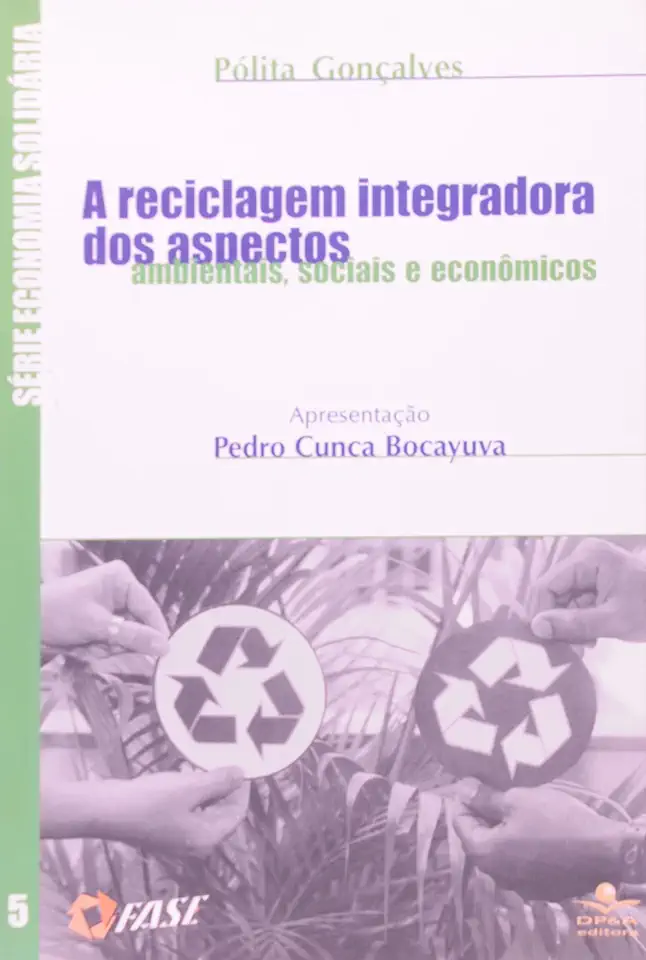
The Integrated Recycling of Environmental, Social and Economic Aspects - Polita Gonçalves
The Integrated Recycling of Environmental, Social and Economic Aspects
Introduction
In today's world, the concept of sustainability has become increasingly important. As we face the challenges of climate change, resource depletion, and social inequality, it is essential that we find ways to create a more sustainable future. One way to do this is through the integrated recycling of environmental, social, and economic aspects.
What is Integrated Recycling?
Integrated recycling is a holistic approach to recycling that takes into account the environmental, social, and economic impacts of the recycling process. This means considering the entire lifecycle of a product, from its extraction and production to its use and disposal. By taking a comprehensive approach, integrated recycling can help us to create a more sustainable future.
Environmental Benefits of Integrated Recycling
Integrated recycling can have a number of positive environmental benefits. For example, it can help to:
- Reduce greenhouse gas emissions
- Conserve natural resources
- Reduce pollution
- Protect biodiversity
By reducing the amount of waste that we produce, we can help to reduce the demand for new materials. This can lead to a reduction in greenhouse gas emissions, as well as the conservation of natural resources such as forests and minerals. In addition, recycling can help to reduce pollution by preventing waste from being incinerated or landfilled. Finally, recycling can help to protect biodiversity by reducing the amount of waste that ends up in our oceans and waterways.
Social Benefits of Integrated Recycling
Integrated recycling can also have a number of positive social benefits. For example, it can help to:
- Create jobs
- Improve public health
- Reduce crime
- Strengthen communities
By creating jobs in the recycling industry, integrated recycling can help to boost the economy and reduce unemployment. In addition, recycling can help to improve public health by reducing the amount of pollution in our environment. Recycling can also help to reduce crime by providing an alternative source of income for people who might otherwise be involved in criminal activity. Finally, recycling can help to strengthen communities by bringing people together to work towards a common goal.
Economic Benefits of Integrated Recycling
Integrated recycling can also have a number of positive economic benefits. For example, it can help to:
- Save money
- Increase profits
- Improve competitiveness
- Create new markets
By reducing the amount of waste that we produce, we can save money on waste disposal costs. In addition, recycling can help businesses to increase profits by selling recycled materials. Recycling can also help businesses to improve their competitiveness by reducing their environmental impact. Finally, recycling can help to create new markets for recycled materials.
Conclusion
The integrated recycling of environmental, social, and economic aspects is a powerful tool that can help us to create a more sustainable future. By taking a holistic approach to recycling, we can reduce our environmental impact, improve our social well-being, and boost our economy.
Call to Action
If you are interested in learning more about integrated recycling, there are a number of resources available online. You can also contact your local recycling center or waste management company to learn more about how you can get involved.
Enjoyed the summary? Discover all the details and take your reading to the next level — [click here to view the book on Amazon!]